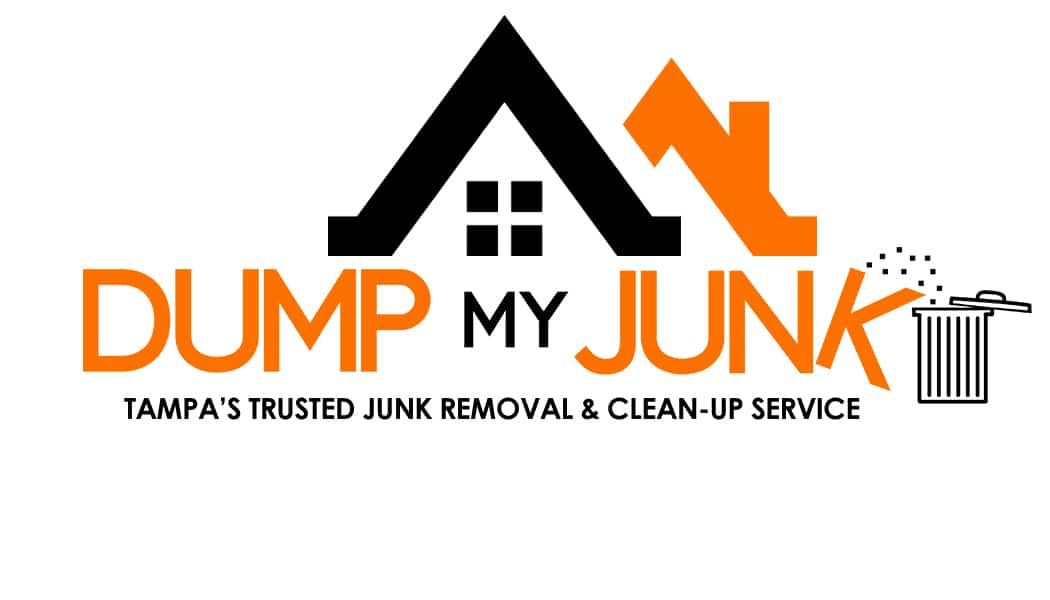
Fast, Affordable Local Construction Clean Up Team
Our pricing is based on the amount of space your items take up in our trucks. You can be assured you know exactly how much you will pay for junk disposal, unlike other companies who try to tack on hidden fees with their rates!
At Dump My Junk, LLC, we are your trusted partners for full-service Construction Clean Up, dumpster rental, and demolition services. Established in 2015 by a dedicated husband and wife team, we turned our vision into reality in 2019. With a primary focus on demolition, we have earned a solid reputation in the industry.
Our expertise lies in comprehensive junk removal, catering to both residential and commercial properties, as well as construction sites. As a family-owned and operated small business, we take immense pride in our work, drawing on over 7 years of experience to deliver exceptional results.
Should you have any questions or concerns, our friendly team is always available to address them promptly. Choose Dump My Junk, LLC for all your construction Clean Up, dumpster rental, and demolition needs. Experience our exceptional service and make your disposal worries a thing of the past.
Construction Clean Up Service
Our Safe, Effective Junk Removal Service
Crews Can Be On-Site Today
We Are Local Small Business
To obtain our service, fill out our form. Expect our response with an available schedule. Dumpster rental is also available as an option.
No Job is too Big or too Small. If You Have Junk, We Can Remove It.
We Serve a Wider Community
Headquartered in Tampa, Florida, we have strategically positioned locations in Brandon, St Petersburg, and Wesley Chapel to serve a wider community. Our extensive tenure in the industry has allowed us to refine our craft, ensuring that every Construction Clean Up project is handled swiftly and efficiently, enabling you to concentrate on more important matters.
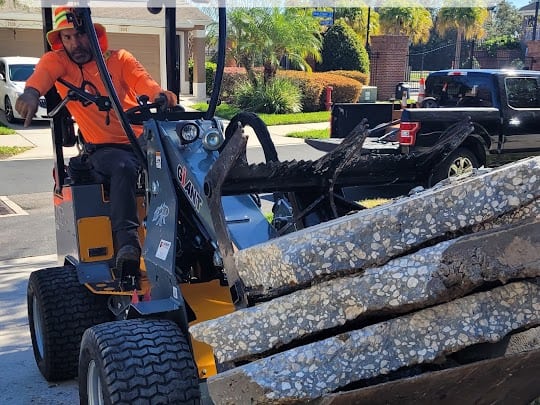
Construction Clean Up & Demolition Done Right
Construction Clean Up and Demolition done right with our expert service team. We specialize in delivering efficient and reliable solutions to ensure a clean slate. From junk removal to safe demolition, trust our team for professional and hassle-free results. Contact us now for a fresh start.
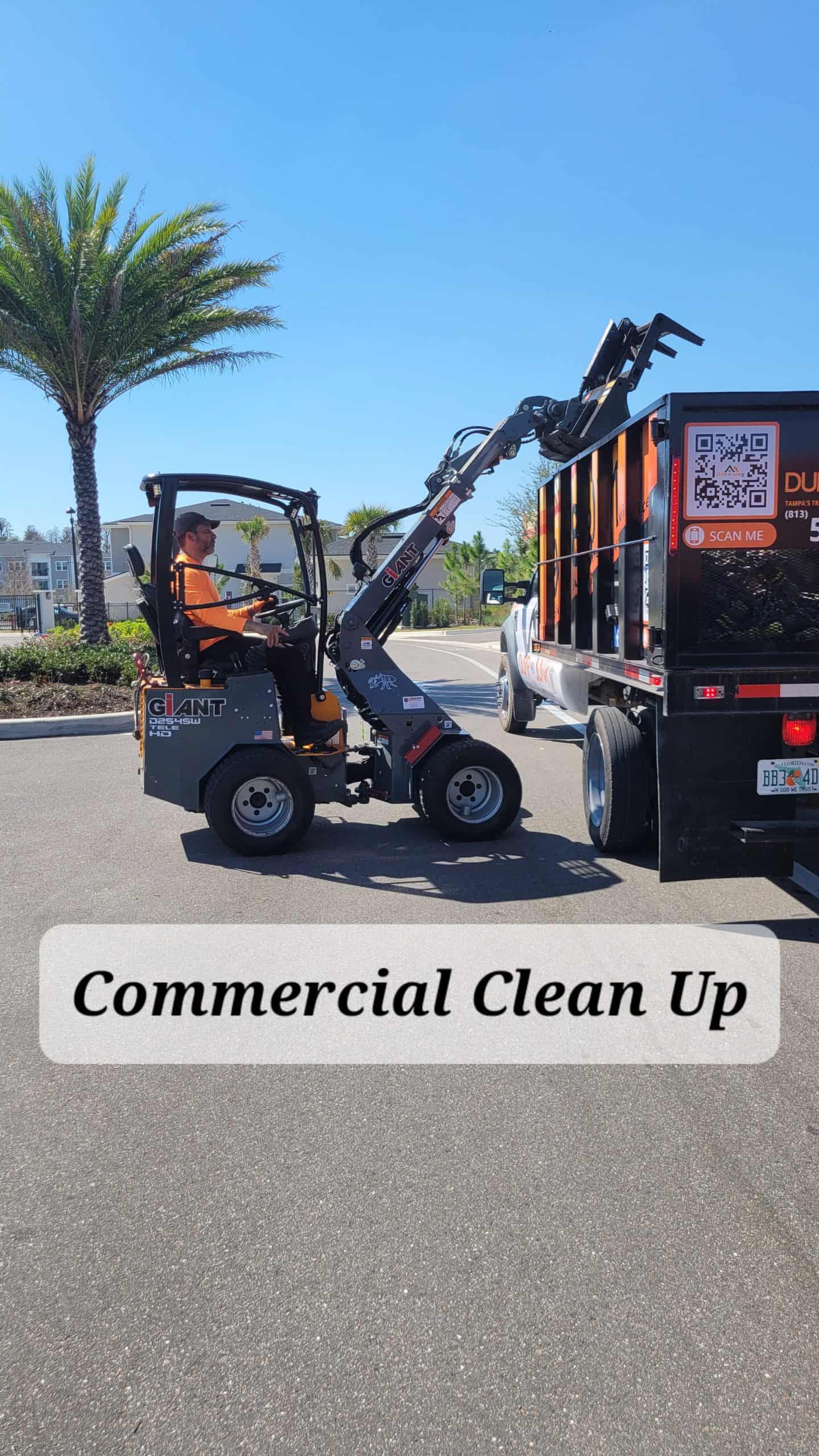
Cost-Effective Solutions
No matter the scale of the job, we approach each task with the same level of dedication and professionalism. We are fully licensed and insured, prioritizing the safety and satisfaction of our valued customers. Our commitment to excellence drives us to deliver the best possible service, consistently exceeding expectations.
Call us now at (813)-536-3338 and experience the best customer service around!
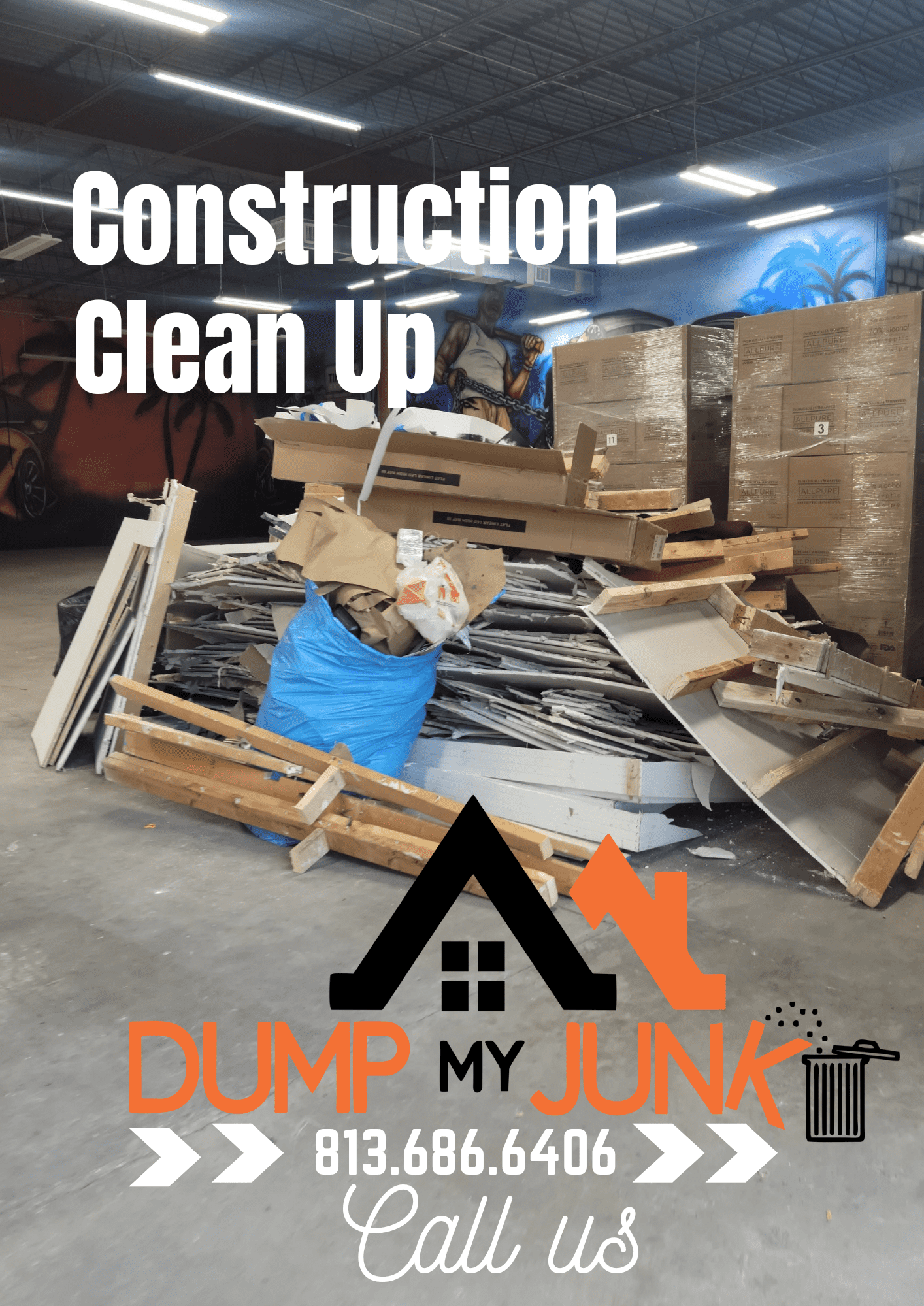
Free Estimates
If you're considering removing your unwanted items, we offer free estimates. Contact us today and one of our team members will be happy to provide you with a free, no-obligation estimate. We'll take the time to discuss your project and provide you with an accurate quote.
- Free Estimates
- Affordable Pricing
- Same-Day Service
Our customers come to us for all kinds of junk removal & demolition needs, including:
Estate Clean-outs, Homeless Camp Clean-out Services, Tenant Clean-outs, Storage Unit Clean-outs, Garage Clean-outs, Hoarder Clean-outs, & Kitchen Demo, Drywall Demo, Play Set Removal, Hot Tub & Wood Shed Removals, much more.
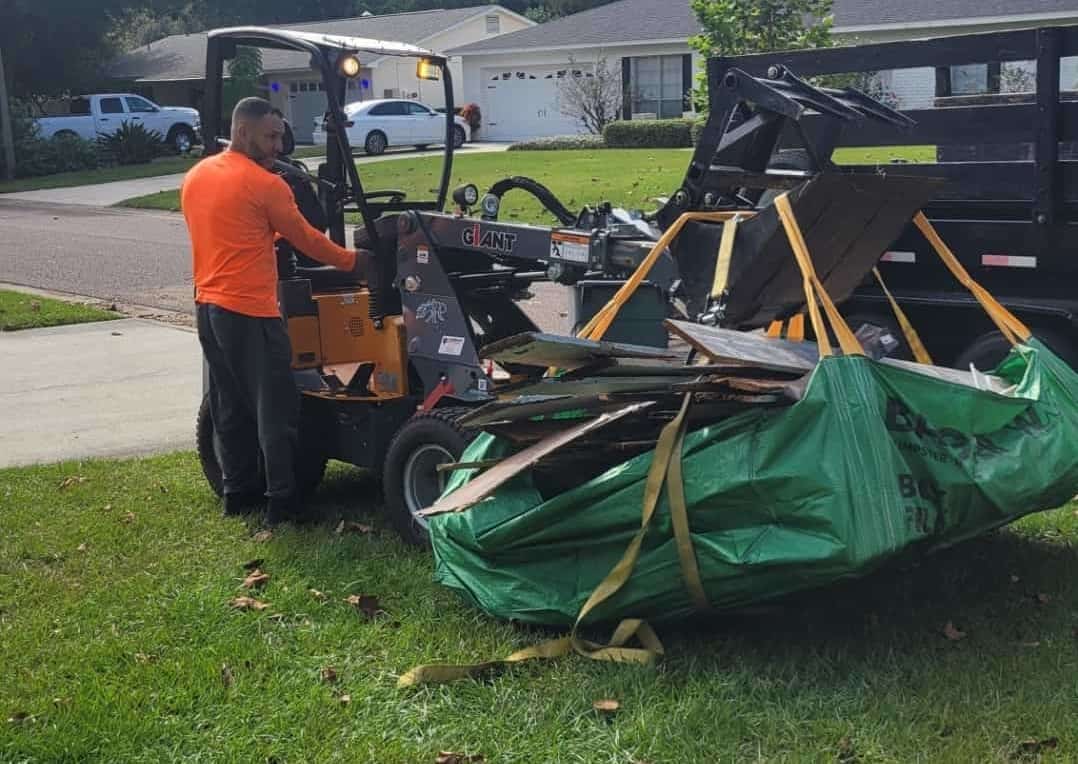
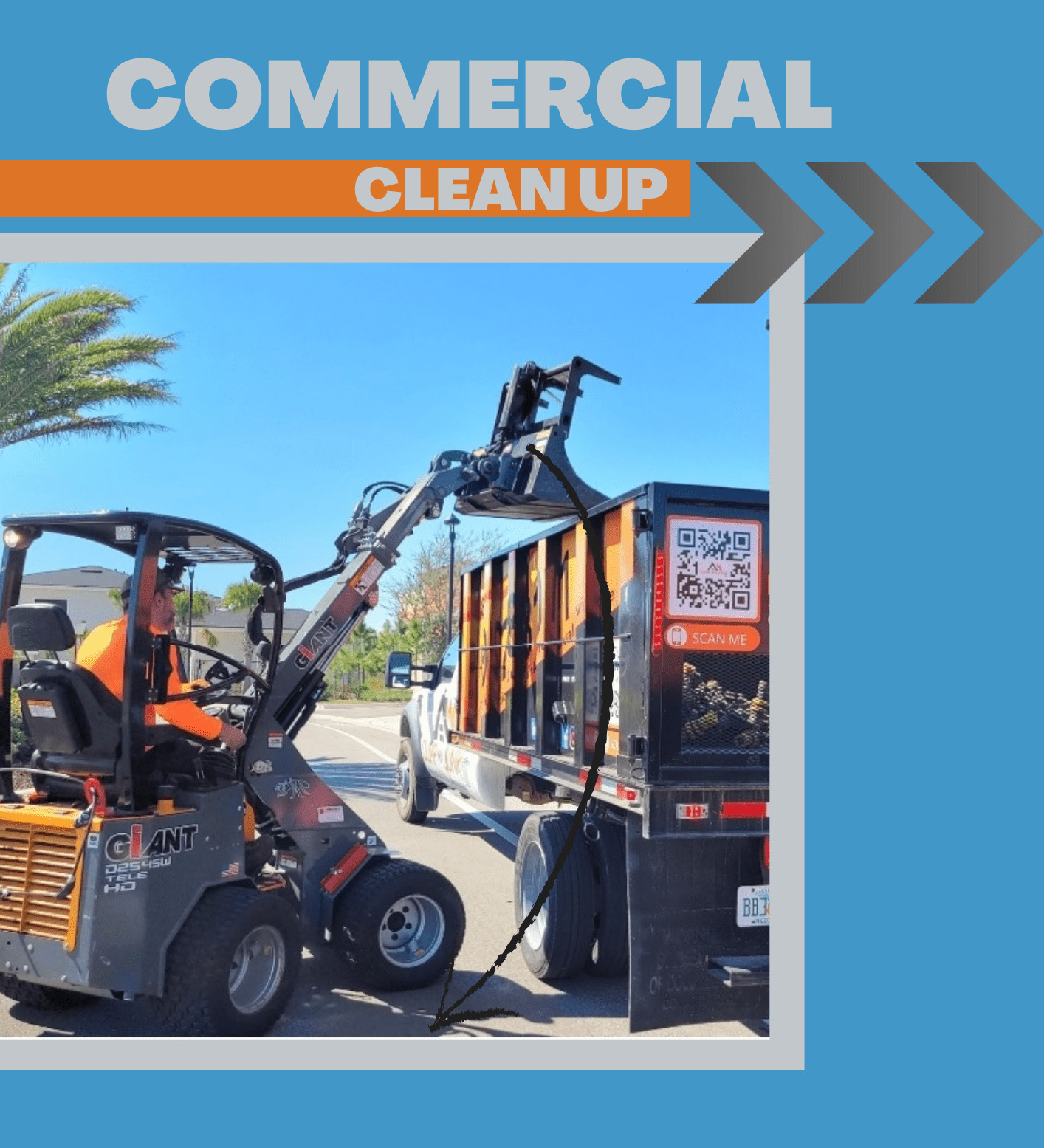
Hours of Operation
Monday - Friday: 7:00 a.m. - 7:00 p.m.
Saturday - Sunday: 7:00 a.m. - 8:00 p.m.
Service Area
Hillsborough County, FL, Pinellas County, FL, Pasco County, FL, and surrounding areas.
Commercial & Residential Dumpster Rentals.
Servicing Hillsborough, Polk, Pasco, Pinellas.
Call Us 813-536-3338
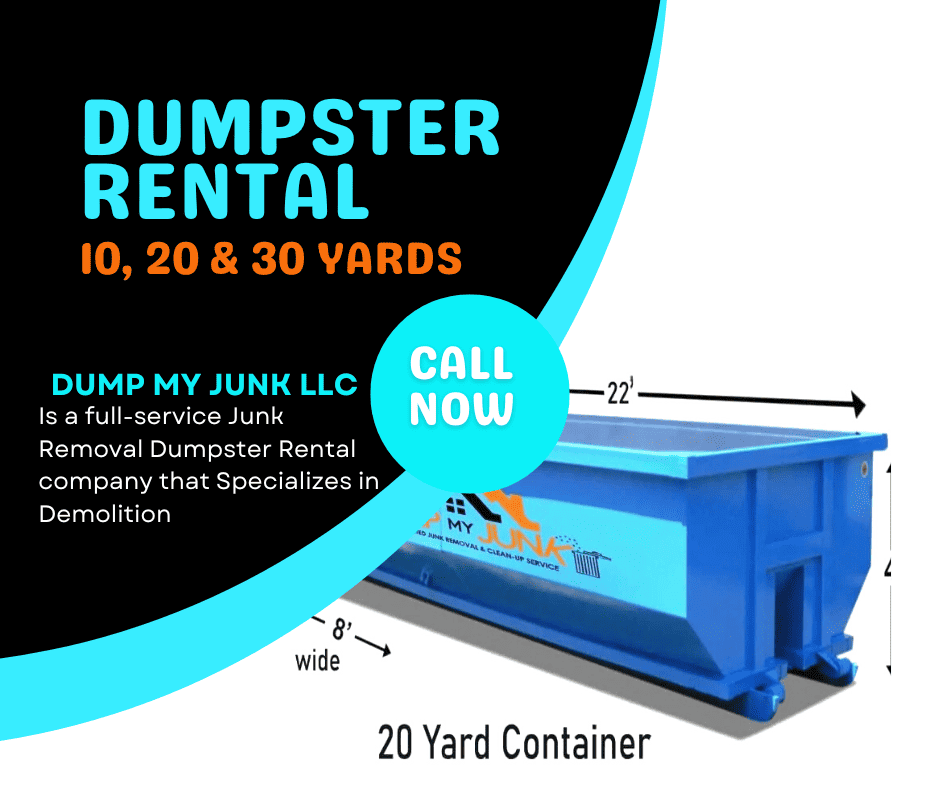
We Have Trucks On Stand-By
"Xavier and his partner came out and removed a ton of yard/tree debris. They did a great job! Pleased with my experience- from the initial phone call, the woman was professional and pleasant…and Xavier and his partner showed up same day! They moved quick and did a lovely job. Thank you!"
Lauren Hermann
 Lauren Hermann
Lauren HermannI was shopping around to have my old yard playset removed. They gave a very reasonable quote so I decided to go with them. They came the very next day and removed the playset very quickly, they also made sure there was no debris laying around after the removal. If you are looking for a great company to remove your junk I would highly recommend them!
Joseph Christ
 Joseph Christ
Joseph ChristReady to Get Rid of Old Junk?
Contact Dump My Junk to schedule your FREE estimate today by calling 813-536-3338